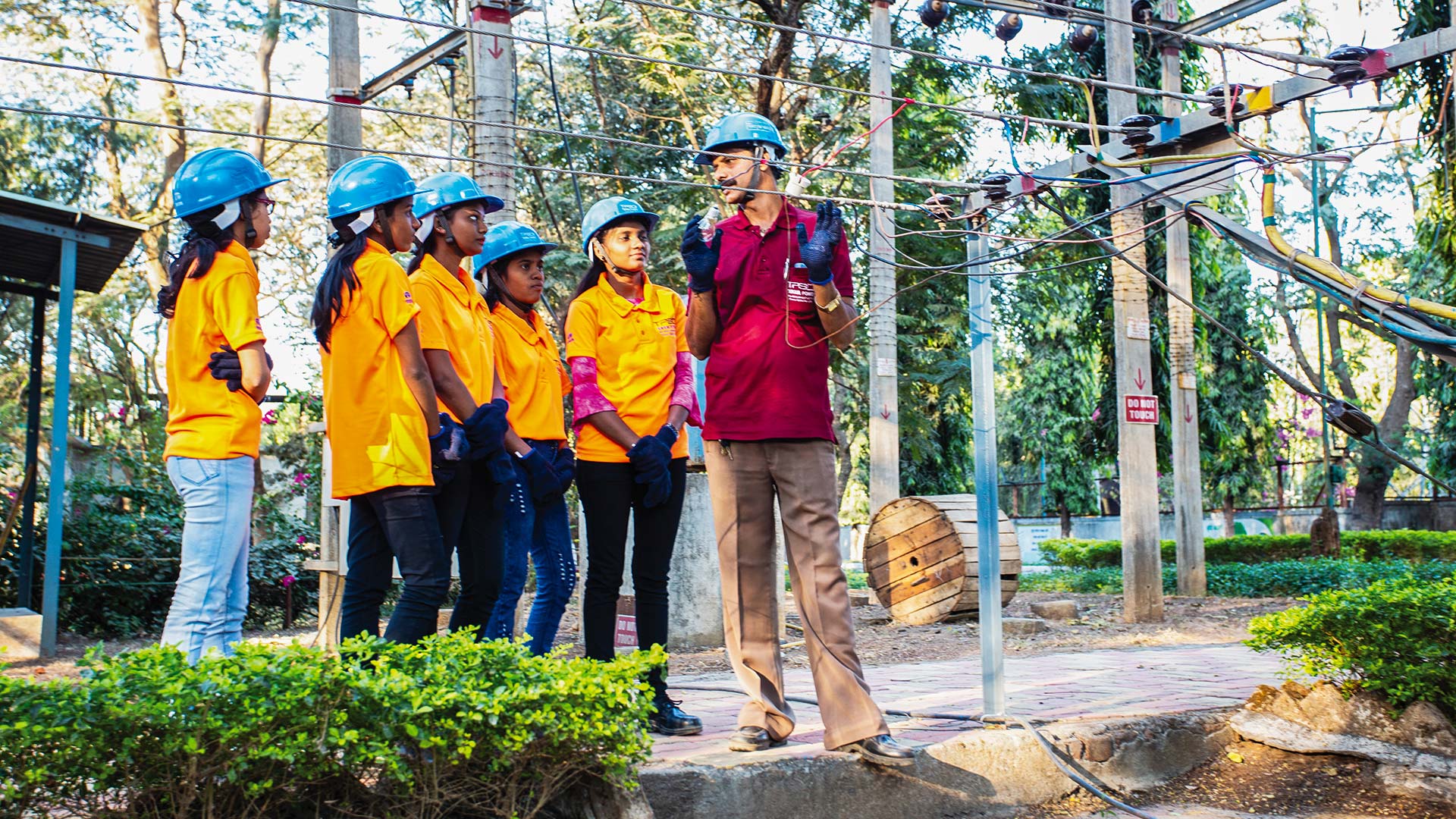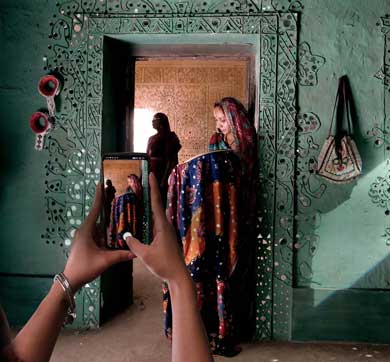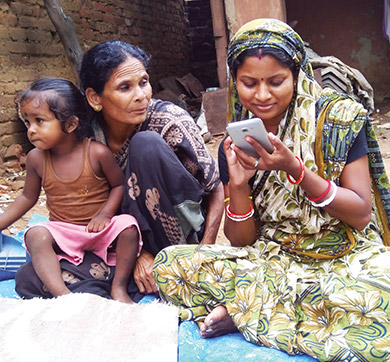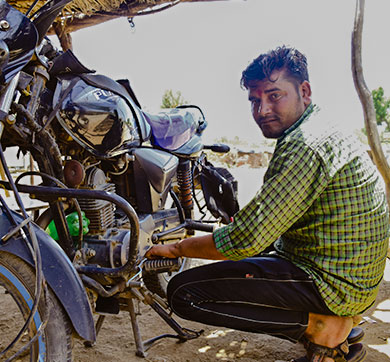June 2022 | 1771 words | 7-minute read
Until the Covid-19 pandemic in 2020, employability in India had been on an upward trajectory, witnessing a 2-5 percent rise year-on-year since 2015. In 2021, the number shrunk to 45.9 percent from 47.38 percent in 2019, as per the India Skills Report that year. Though 2022 has witnessed a marginal recovery, it did prompt organisations to fine-tune their skilling initiatives.
Tata STRIVE (Tata Trusts’ skill development initiative) and Tata companies were quick to adapt their programmes to ensure they didn’t lose momentum due to lockdown restrictions. Blended learning models were implemented in courses where remote learning was feasible, like courses related to IT/ITES or banking, financial services and insurance (BFSI) sectors.
Kiran Kamble was part of one such blended learning batch. A catastrophic road accident left the 17-year-old with a lifelong disability of the right arm and leg, and his five-year recovery left his family in dire financial straits. At 24, as Kiran embarked on the uphill task of looking for a job, he chose to pursue the RSA (retail sales associate) training programme by Tata STRIVE. Today, Kiran, who is an RSA at Star Bazaar, credits Tata STRIVE with his new-found stability. “The training taught me how to interact with people, especially tough customers. Now that I have completed a year at my job, I’m confident I would be able to do any work if I put myself to it,” he says.
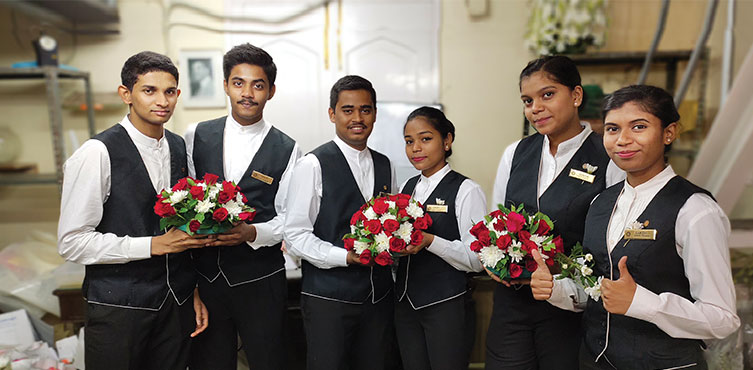
Honed for hospitality
The Indian Hotels Company (IHCL) is on a skilling mission with its partners, Tata STRIVE, Ambuja Cement Foundation and Head Held High, to mould potential talent into productive employees across the country’s hospitality sector.
IHCL’s CSR team collaborates with established stakeholders in the skill-building environment as knowledge partners, creating employability for the deserving and the marginalised. It is also working towards creating academies for specialised skills such as spa and salon services and hosting for homestays.
Additionally, the hospitality behemoth has initiated key strategic tie-ups with the Confederation of Indian Industry and École hôtelière de Lausanne, a hospitality management school in Switzerland, for vocational educational training; and the Tata Institute of Social Sciences for a three-year graduate programme in hospitality. Through these collaborations, IHCL trained over 1,300 students last year.
New frontiers
Since its first centre in 2016, Tata STRIVE has grown to 114 active centres across 19 states, impacting almost 10 lakh beneficiaries. The organisation aims to skill youth for better employability, counselling them on the right careers and promoting their overall self-enhancement.
“Our strong partnerships with various industry leaders within and outside of the Tata group have helped us grow,” says Ameya Vanjari, head – Operations, Partnerships & Technology, Tata STRIVE. “While we continue to expand our network of partners, locations and courses, we are at an interesting juncture where new frontiers are opening up for us. The new education policy stresses on vocational education in schools, so we are implementing courses there and engaging with state governments and departments on innovative solutions to address complex issues with skill development.”
Currently, Tata STRIVE has 41 active courses, covering technical, BFSI, retail, hospitality, and business development among others.
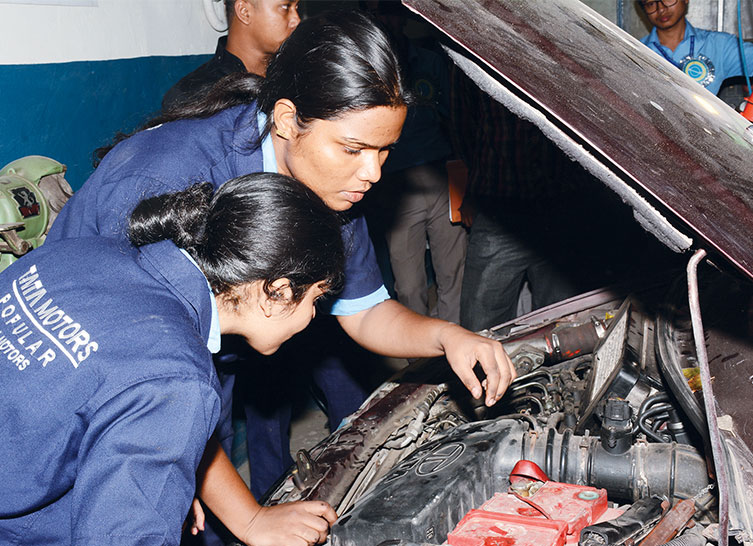
A giant LEAP
Bella Sara, a young science graduate, had always been deeply motivated to pursue a career in the automotive sector — a largely male-dominated field. Once she enrolled at the Tata Motors Ltd's (Tata Motors) Automotive Service Technician course at Little Flower Engineering Institute, Kochi in Kerala, there was no holding her back. Today, not only is she employed but has also been promoted at GMMCO CAT, one of the biggest dealers of Caterpillar products in India.
The numbers
- A total of 12,668 youth have been trained under the programme since 2013.
- An average of 80-85 percent of candidates are employed within three months of completing their training, in Tata Motors and the larger industry.
- Candidates earn an average salary of Rs 10,000 per month, with women candidates being offered a larger stipend – approximately Rs 1,500 more.
- Scholarship of Rs 5000 is given to SC/ST students and Rs 1500 is given to women students.
Bella is just one of many success stories that have emerged from Tata Motors’ Learn Earn and Progress Programme (LEAP), which imparts automotive skills (service technician) to youth from underprivileged communities. The company’s flagship corporate social responsibility (CSR) programme has grown from two institutes when it was initiated in 2013-14 to 60 institutes by 2021, with a footprint across 16 states. Preference is given to dropouts from X and XII class, who if they remain unskilled and unemployed, may be susceptible to unlawful activities.
LEAP is run in a public-private partnership model, with member Industrial Training Institutes (ITIs) of Skills for Progress (SKIP), and Tata Motors dealers and Authorised Service Stations (TASS).
- Trainees are imparted theoretical knowledge at the ITIs for three months.
- On-the-job training with stipend is provided by Tata Motors and TASS for nine months.
- On completion of training, youth are assessed and certified by Automotive Skill Development Council (ASDC).
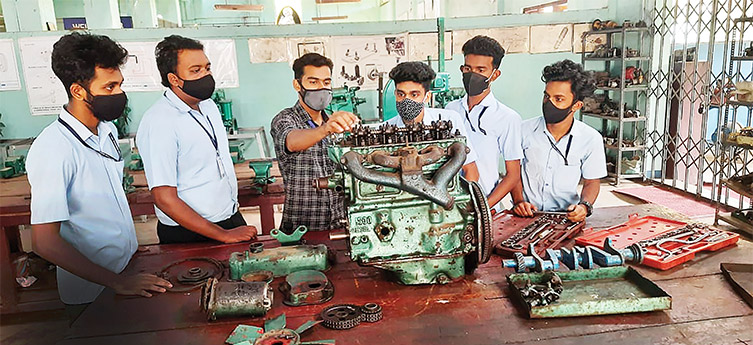
Financial aspirations
The BFSI sector has been one of the top employers in India since 2018, yet it faces a serious skills gap. Tata Capital Ltd's (Tata Capital) ProAspire programme aims to contribute to Government of India’s Skill India initiative by training and placing candidates from underprivileged backgrounds, including affirmative action sections, in this sector.
ProAspire aims to equip youth with industry-relevant training, domain knowledge, personality development and placement opportunities in rural, semi-urban and urban areas in the BFSI sector. Youth under the age of 35, from low-income groups and affirmative action communities are the target group, with focus on women. Tata Capital has partnered with Tata STRIVE to develop the BFSI BDE (business development executive) curriculum, and the company’s employees volunteer as guest speakers to share their expertise.
The training institutes offer online blended courses, spanning 45 to 70 days, with facilities like labs, computers and mock drills to selected candidates who, following a successful assessment, are guided in preparing CVs and facing interviews. Their progress is tracked for 12 months for continuity under employment.
Since its inception in 2016, 8600+ beneficiaries have been certified by ProAspire, with many finding placements with some of the programme’s leading partners from the BFSI sector, including Bajaj Capital, Kotak Mahindra, ICICI Bank, India Infoline and Blue Chip Investment Corp.
Empowered by knowledge
Employment and employability are key thrust areas of Tata Power Ltd's (Tata Power) community development outreach, with its focus on addressing the skill-gap challenge among community youth.
Tata Power Skill Development Institute (TPSDI) has trained more than 1.3 lakh people in industrial safety, power sector-related skills and employability skills. Its technical courses include hands-on practicals and simulator lab sessions. TPSDI trained students are empowered to become entrepreneurs.
TPSDI also provides green job-centric courses in solar, covering design, installation, operations and maintenance of solar installations. Over 7,100 people have been imparted solar-related skills through the courses so far, and the institute is prepared to skill youth in upcoming employability areas like home automation, EV charging and smart metering.
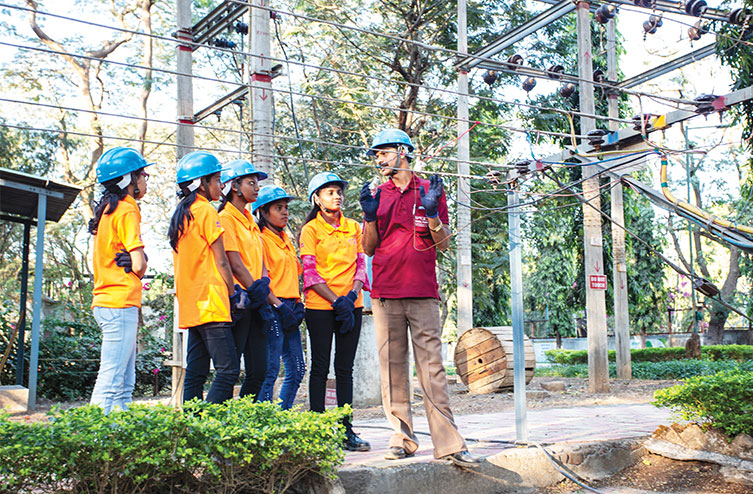
TPSDI runs 6 state-of-the-art skill hubs across Maharashtra, Gujarat and Jharkhand and has launched smaller skill spokes in Odisha, Kerala and Prayagraj. During the pandemic, it launched the Virtual Academy of Skills to offer all of its courses online, and skilled 12,000 trainees through a unique mix of live workshop demonstrations and simulations.
Under its affirmative action programmes, TPSDI accords special preference and lower fee to women and SC/ST trainees, training more than 4,400 women and 4,000+ SC/ST trainees.
Abha, Abha Sakthi and Abha Sakhi are vocational skilling programmes for women implemented by Roshini – Integrated Vocational Training Centre, using a unique model to further women’s livelihoods by combining customer connect and safety, and shared value generation by upskilling women’s self-help groups.
Semi-skilled and unskilled women are provided mentoring and quality training on electricity metering, billing, collections, and awareness of energy conservation. Today, these community ambassadors of Tata Power are not only financially empowered but also rally a very critical cause on energy conservation.
The flagship skilling and employment model is being furthered in Delhi as Abha, in Odisha as Abha Sakti, and in Mumbai as Abha Sakhi, serving a large customer base in slum and rural areas. The initiative also focuses on vocational skill-building of semi-skilled/unskilled women, focusing on financial literacy, life skills and leadership training.
The numbers
- 2.6 lakh+ youth have benefitted through Tata Power’s skilling initiatives since 2018
- 8,000+ Abha women have been engaged across Delhi, Jharkhand, Mumbai and Odisha in the last four years
- 99,000+ youth trained and gainfully engaged in FY22, for different technical and non-technical courses.
- Empowered community partners today earn an average monthly income of Rs 10,000.
Rural development through livelihood
Established in 1980, Tata Chemicals Society for Rural Development (TCSRD) conducts various skill development interventions with an aim to build employable skills in rural youth, providing a platform to generate employment in small- or medium-sized businesses as well as self-employment through enterprise development. Under the programme, 18,235 youths have been trained, and around 10,000 are earning livelihoods.
Last year, during the pandemic, to ensure continuity of skill training, TCSRD conducted digital programmes in addition to physical modules in Mithapur and Dahej in Gujarat; Mambattu, Andhra Pradesh; Cuddalore, Tamil Nadu; and Akola and Dhasai in Maharashtra.
TCSRD imparts training to youth through:
- Its own Technical Training Institute & Skill Development Centres in Mithapur and Dwarka, where youth are trained in tailoring, IT skills, and technical/industrial skills.
- SAKSHAM, an initiative by TCSRD and NABARD (National Bank for Agriculture and Rural Development), offers nine short-term courses (NABSKILL), including driving and forklift operation, only to women trainees.
- Outbound trainings in partnership with L&T Constructions, Ambuja Cement Foundation, and Dhanakshi Academy for Inspired Learning, Industrial Fire & Safety Institute.
- Recruitment drives, wherein a placement cell at Devbhumi Dwarka district, linked with all the special economic zones of Gujarat, generates an average of 5,500 plus vacancies throughout the state for different sectors.
- Under TaRa – Skill Development Programme, an acronym for Tata Rallis which is a subsidiary of Tata Chemicals Ltd, skill training programmes for women were started in Dhasai in partnership with Light of Life Trust. To inculcate industry-responsive skill development, TCSRD partnered with 2 ITIs.
- At the Tata STRIVE Centre in Aligarh, Uttar Pradesh, TCSRD partners with Tata Community Initiatives Trust to skill underprivileged youth in industry-specific trades.
—Anuradha Anupkumar




